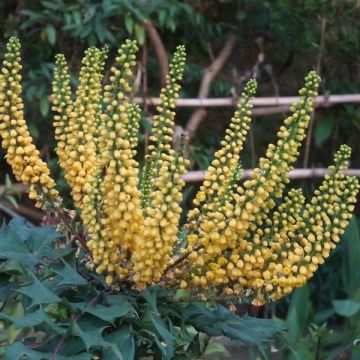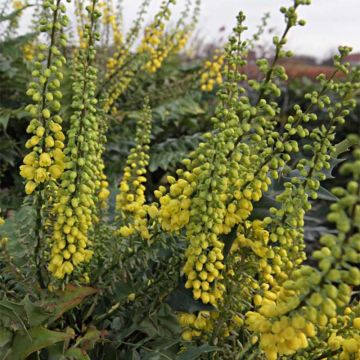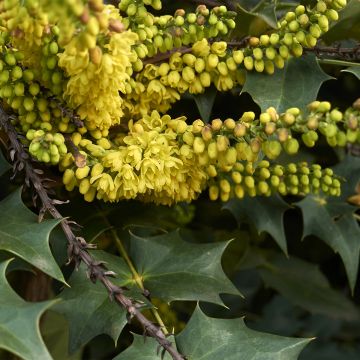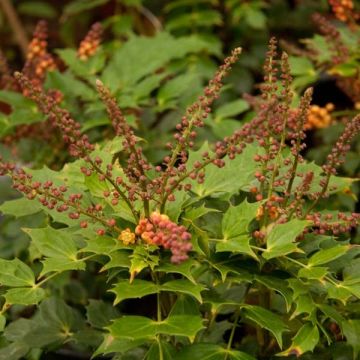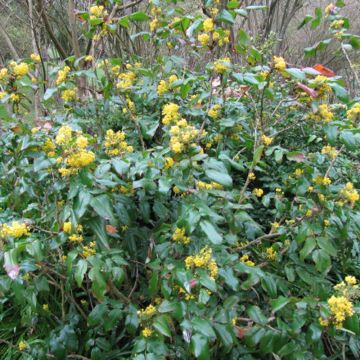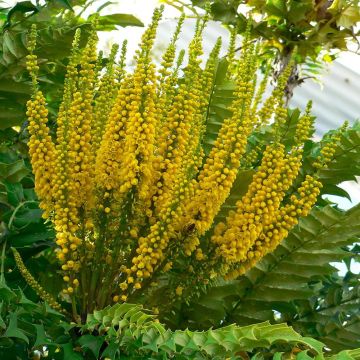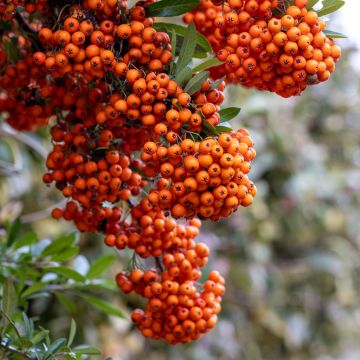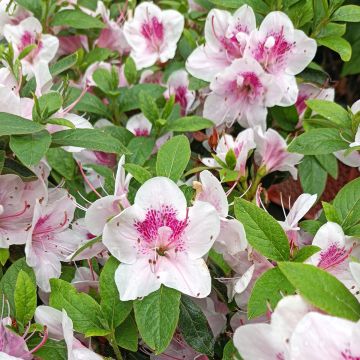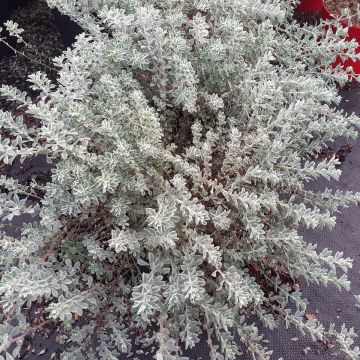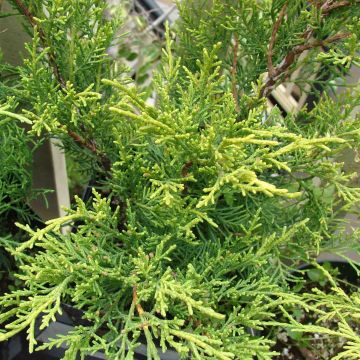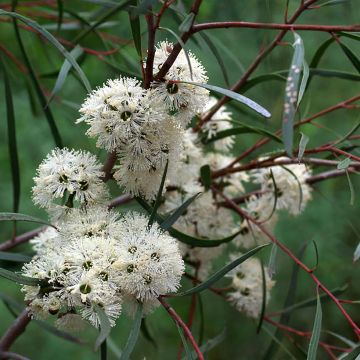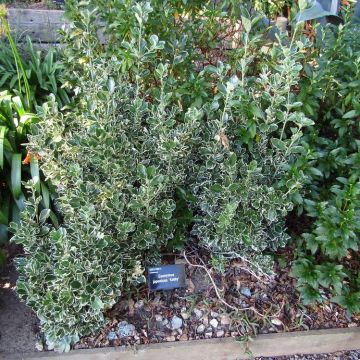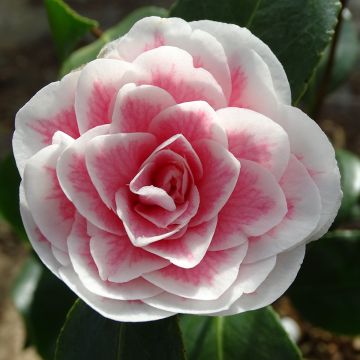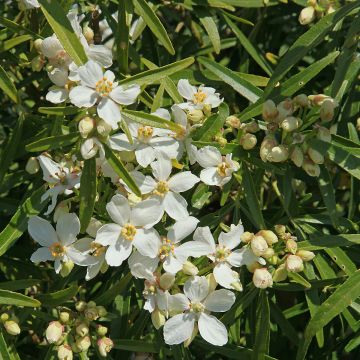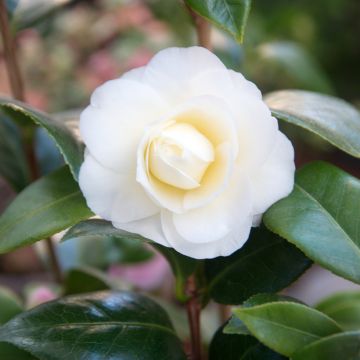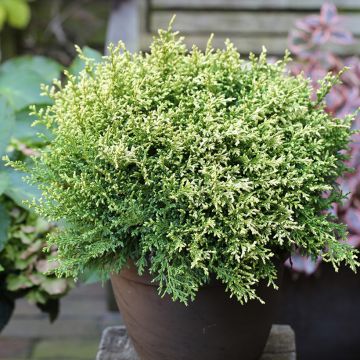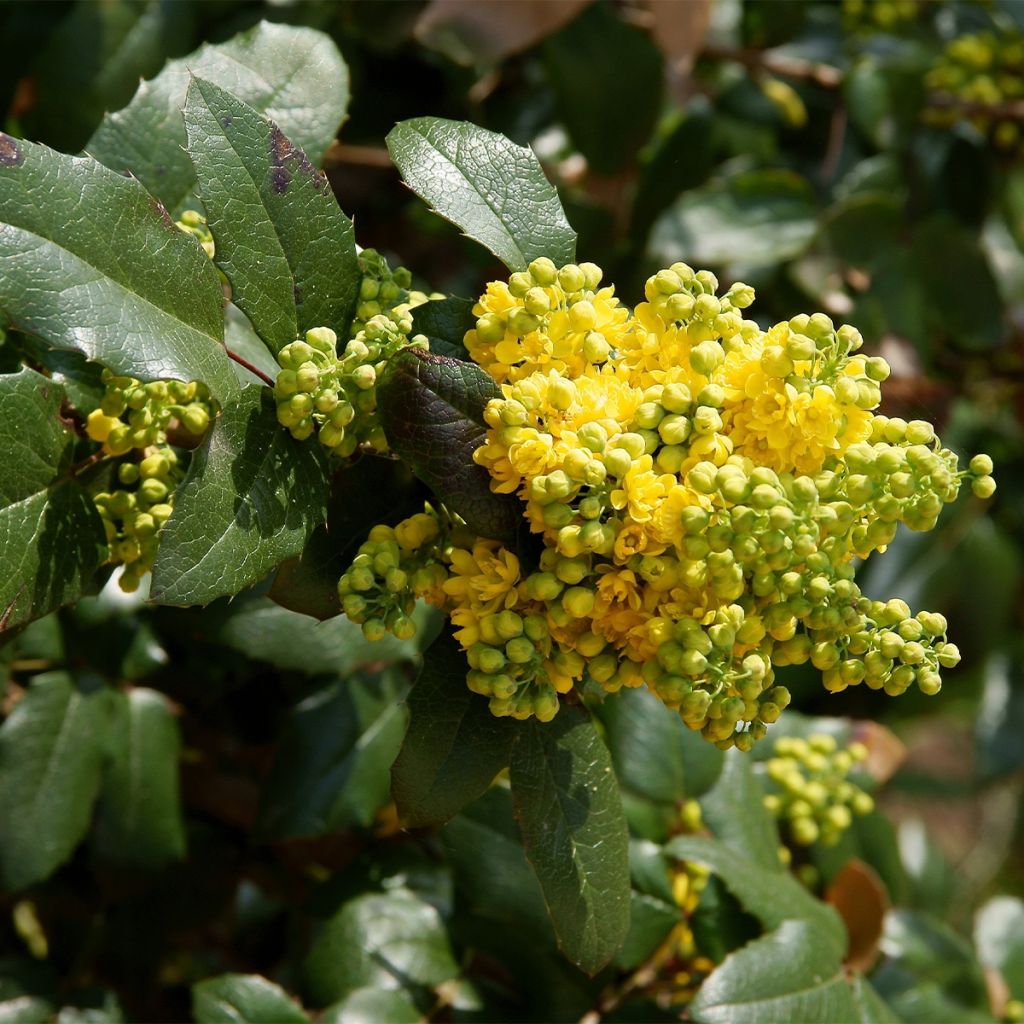

Mahonia (x) wagneri Pinnacle
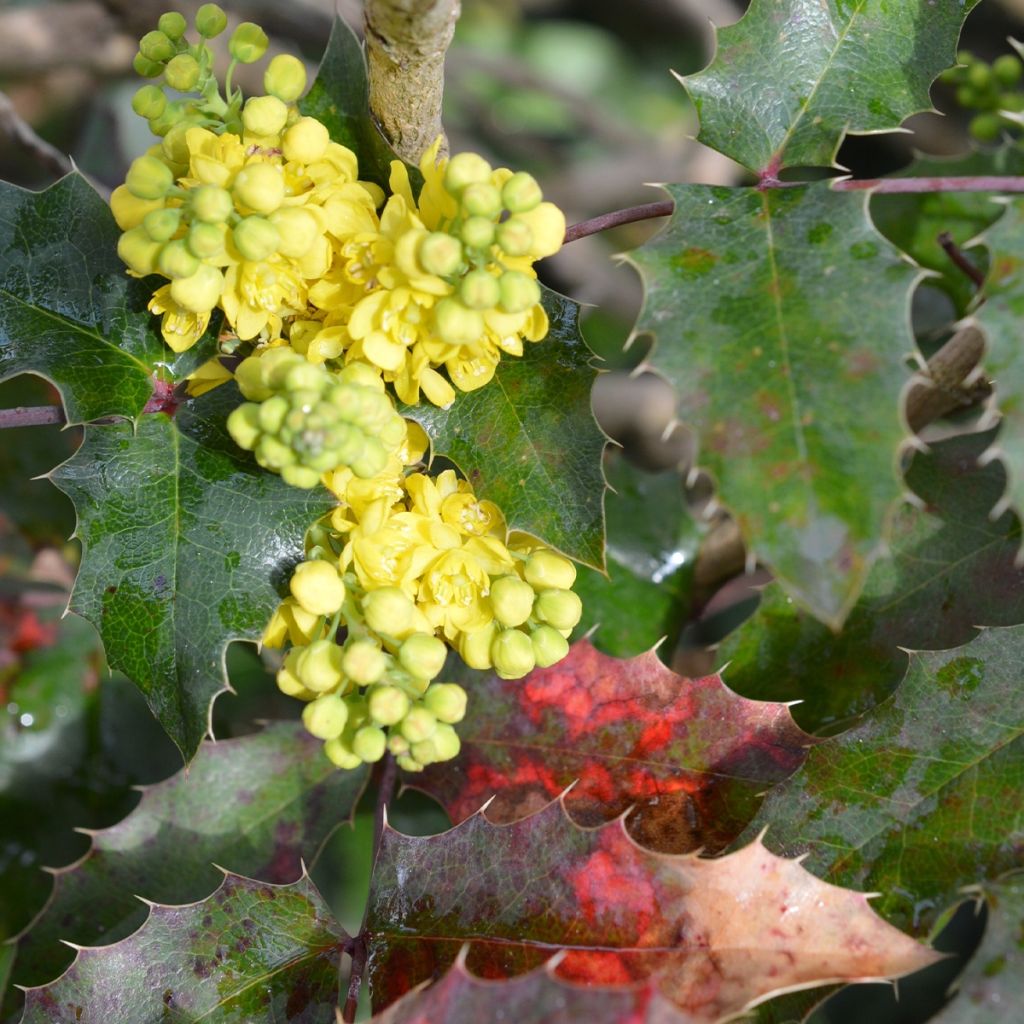

Mahonia (x) wagneri Pinnacle
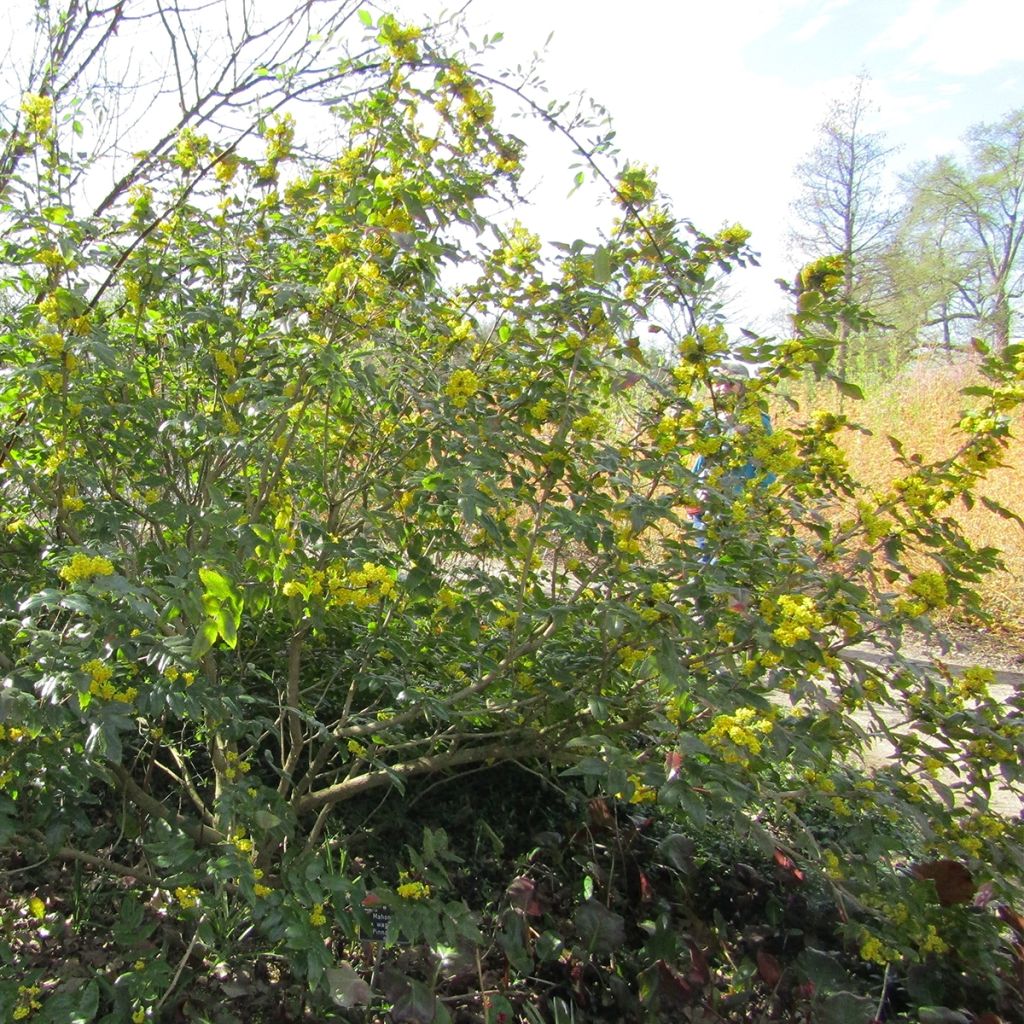

Mahonia (x) wagneri Pinnacle
Mahonia x wagneri Pinnacle
Mahonia x wagneri Pinnacle
Wagner's Mahonia, Pinnate Mahonia, Oregon Grape
This item cannot be shipped to the selected country
Delivery charge from €5.90
More information
Schedule delivery date,
and select date in basket
This plant carries a 24 months recovery warranty
More information
We guarantee the quality of our plants for a full growing cycle, and will replace at our expense any plant that fails to recover under normal climatic and planting conditions.
From €5.90 for pickup delivery and €6.90 for home delivery
Express home delivery from €8.90.
Does this plant fit my garden?
Set up your Plantfit profile →
Description
The Mahonia x wagneri 'Pinnacle' is a selection of hybrid Mahonia with remarkable flowering, both in terms of abundance and its lily-of-the-valley-like fragrance, reminiscent of mimosa. It appears in late winter or early spring, surrounded by young bronze-tinted holly leaves. Nectar-bearing, the flowering feeds bees during a time of year when resources are scarce, and its lovely clusters of fruits bring joy to birds. It is an evergreen bush with a wide and dense habit that integrates perfectly into a hedge or thicket. Truly adaptable, this Mahonia adapts to a wide range of soils and thrives in all climates, including the shade of large trees.
The Mahonia x wagneri Pinnacle is an evergreen bush of the Berberidaceae family, just like Berberis, Nandina, and Epimedium. It is a hybrid between the Mahonia aquifolium and its close relative M.pinnata, two species native to the northwest United States, particularly California, Oregon, and British Columbia. Unlike Asian species, Mahonias from the American West tolerate the presence of limestone in the soil and are content with ordinary, even dry, soil once well established.
The 'Pinnacle' Mahonia, moderately fast-growing, has a both dense and wide habit. The bush reaches between 1.50 m (5ft) and 1.75 m (6ft) in all directions. Its leaves persist in winter. They are alternately arranged on the branches, measuring about 30 cm (12 in) long, and are divided into tough and spiny leaflets. The glossy foliage, tinted with bronze rust in spring, becomes bright green in summer. It sometimes takes on red to purple tones due to the cold in autumn and winter. In February-March, reasonably early depending on the region, numerous small fragrant flowers appear, gathered in generous pyramidal clusters, bright yellow in color, measuring 10 to 15 cm (4 to 6 in). Loved by bees, these nectar-rich flowers give way to pretty clusters of somewhat decorative blackish-blue berries. Some songbirds are fond of these slightly tart little fruits.
Perfectly hardy, tolerant of summer drought and limestone soils, tolerant of the roots of large trees, the 'Pinnacle' Mahonia is a colorful, fragrant, and accommodating shrub, which one should consider to bring color to the garden in all seasons. Resistant to wind and urban pollution, it tolerates full sun in cool regions or fairly dense shade in hot climates. Few bushes boast as many qualities that make it almost indispensable in the garden. The Mahonia x wagneri, like its parents, is highly adaptable and tolerates pruning well, in a hedge for example. It can be used as a standalone in a small garden, in a shrub bed, as a defensive hedge, or even in a container on the terrace. Berberis and Sarcococca will be good companions in the shade of large trees. In a Mediterranean-style themed bed, for example, it can be associated with Garrya elliptica James Roof, Prunus illicifolia, and persistent ceanothes, all native to the California.
Tip: Do not plant too tightly in beds, as it prefers an airy environment and spreads somewhat through suckers, without being invasive.
Report an error about the product description
Mahonia x wagneri Pinnacle in pictures
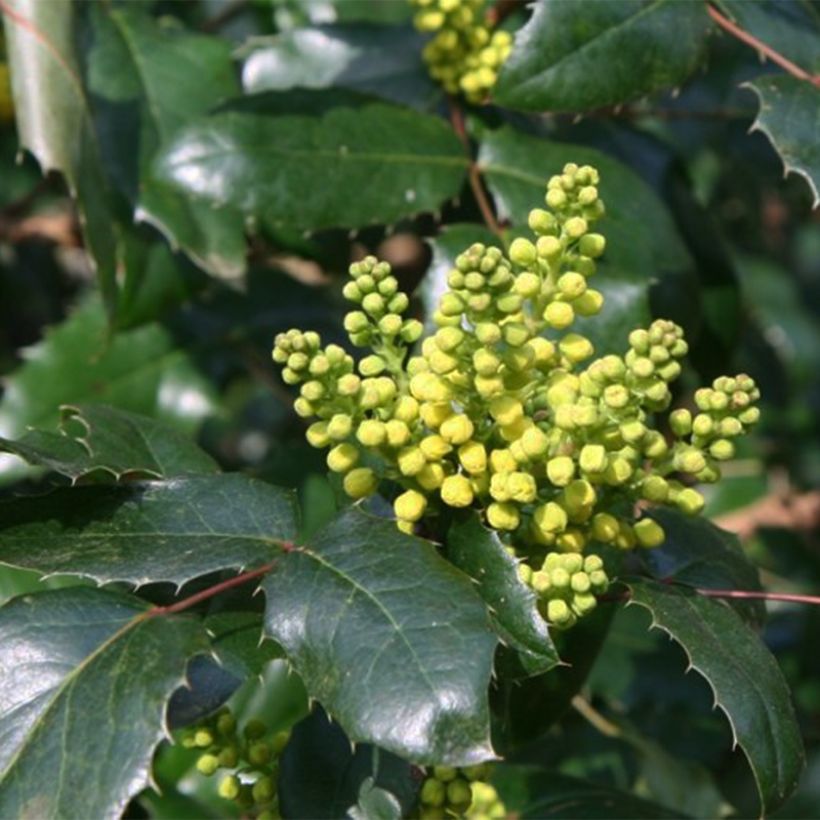

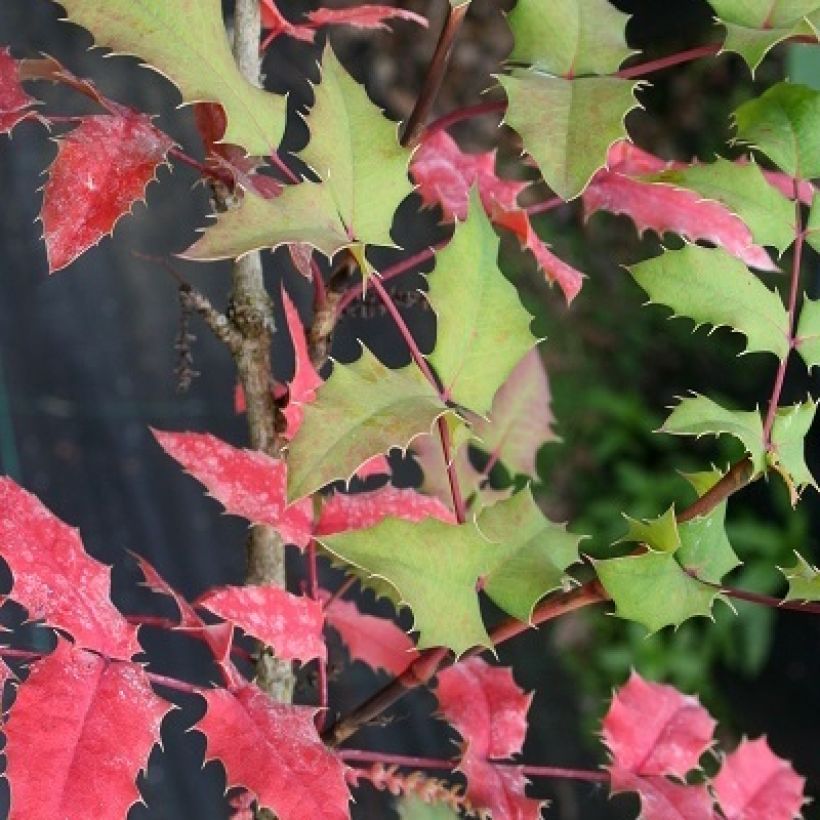

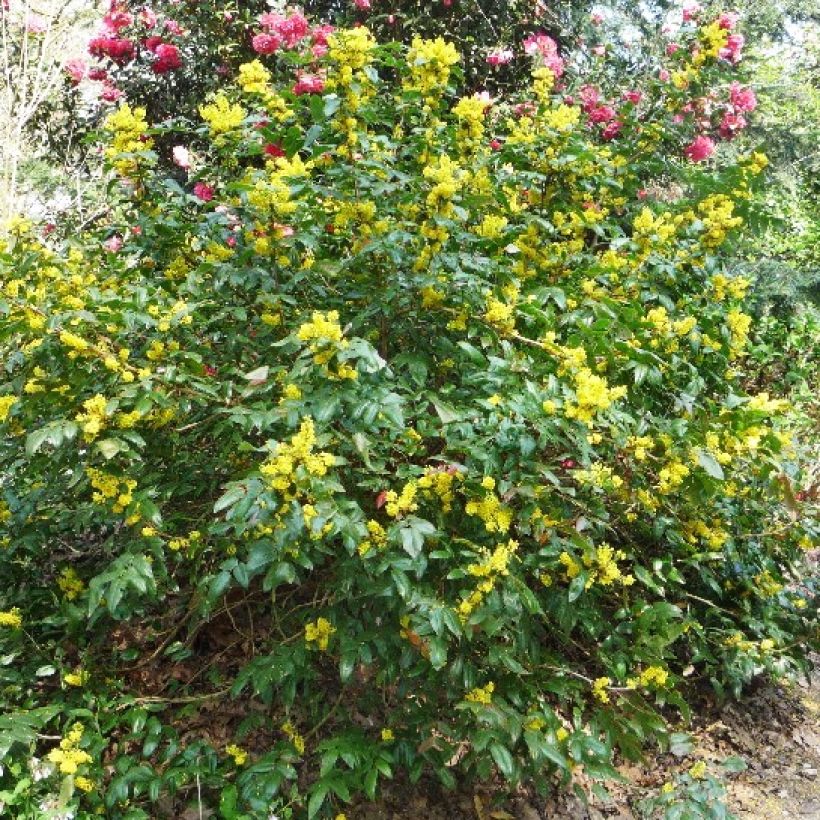

Plant habit
Flowering
Foliage
Botanical data
Mahonia
x wagneri
Pinnacle
Berberidaceae
Wagner's Mahonia, Pinnate Mahonia, Oregon Grape
Cultivar or hybrid
Other Mahonia
Planting and care
Mahonia x wagneri Pinnacle can be planted in spring or autumn, in a loose and deep, neutral or even limestone, well-worked soil. Resistant to wind and pollution, it can tolerate full sun in cold areas, but prefers partial to dense shade in warmer regions. Once established, this Mahonia can withstand summer drought, especially if planted in deep soil. It also tolerates competition from the roots of large trees. Prune after flowering to maintain a regular and harmonious shape, but this will naturally deprive you of the beautiful fruiting that can occur on reddened foliage. It is sometimes attacked by powdery mildew in humid climates or, conversely, when planted in an arid and too hot area. Rust, which produces small orange dots on the underside of leaves, is also quite common in humid climates. Do not plant too tightly in flower beds, as it prefers an airy environment.
Planting period
Intended location
Care
-
, onOrder confirmed
Reply from on Promesse de fleurs
Evergreen shrubs
Haven't found what you were looking for?
Hardiness is the lowest winter temperature a plant can endure without suffering serious damage or even dying. However, hardiness is affected by location (a sheltered area, such as a patio), protection (winter cover) and soil type (hardiness is improved by well-drained soil).

Photo Sharing Terms & Conditions
In order to encourage gardeners to interact and share their experiences, Promesse de fleurs offers various media enabling content to be uploaded onto its Site - in particular via the ‘Photo sharing’ module.
The User agrees to refrain from:
- Posting any content that is illegal, prejudicial, insulting, racist, inciteful to hatred, revisionist, contrary to public decency, that infringes on privacy or on the privacy rights of third parties, in particular the publicity rights of persons and goods, intellectual property rights, or the right to privacy.
- Submitting content on behalf of a third party;
- Impersonate the identity of a third party and/or publish any personal information about a third party;
In general, the User undertakes to refrain from any unethical behaviour.
All Content (in particular text, comments, files, images, photos, videos, creative works, etc.), which may be subject to property or intellectual property rights, image or other private rights, shall remain the property of the User, subject to the limited rights granted by the terms of the licence granted by Promesse de fleurs as stated below. Users are at liberty to publish or not to publish such Content on the Site, notably via the ‘Photo Sharing’ facility, and accept that this Content shall be made public and freely accessible, notably on the Internet.
Users further acknowledge, undertake to have ,and guarantee that they hold all necessary rights and permissions to publish such material on the Site, in particular with regard to the legislation in force pertaining to any privacy, property, intellectual property, image, or contractual rights, or rights of any other nature. By publishing such Content on the Site, Users acknowledge accepting full liability as publishers of the Content within the meaning of the law, and grant Promesse de fleurs, free of charge, an inclusive, worldwide licence for the said Content for the entire duration of its publication, including all reproduction, representation, up/downloading, displaying, performing, transmission, and storage rights.
Users also grant permission for their name to be linked to the Content and accept that this link may not always be made available.
By engaging in posting material, Users consent to their Content becoming automatically accessible on the Internet, in particular on other sites and/or blogs and/or web pages of the Promesse de fleurs site, including in particular social pages and the Promesse de fleurs catalogue.
Users may secure the removal of entrusted content free of charge by issuing a simple request via our contact form.
The flowering period indicated on our website applies to countries and regions located in USDA zone 8 (France, the United Kingdom, Ireland, the Netherlands, etc.)
It will vary according to where you live:
- In zones 9 to 10 (Italy, Spain, Greece, etc.), flowering will occur about 2 to 4 weeks earlier.
- In zones 6 to 7 (Germany, Poland, Slovenia, and lower mountainous regions), flowering will be delayed by 2 to 3 weeks.
- In zone 5 (Central Europe, Scandinavia), blooming will be delayed by 3 to 5 weeks.
In temperate climates, pruning of spring-flowering shrubs (forsythia, spireas, etc.) should be done just after flowering.
Pruning of summer-flowering shrubs (Indian Lilac, Perovskia, etc.) can be done in winter or spring.
In cold regions as well as with frost-sensitive plants, avoid pruning too early when severe frosts may still occur.
The planting period indicated on our website applies to countries and regions located in USDA zone 8 (France, United Kingdom, Ireland, Netherlands).
It will vary according to where you live:
- In Mediterranean zones (Marseille, Madrid, Milan, etc.), autumn and winter are the best planting periods.
- In continental zones (Strasbourg, Munich, Vienna, etc.), delay planting by 2 to 3 weeks in spring and bring it forward by 2 to 4 weeks in autumn.
- In mountainous regions (the Alps, Pyrenees, Carpathians, etc.), it is best to plant in late spring (May-June) or late summer (August-September).
The harvesting period indicated on our website applies to countries and regions in USDA zone 8 (France, England, Ireland, the Netherlands).
In colder areas (Scandinavia, Poland, Austria...) fruit and vegetable harvests are likely to be delayed by 3-4 weeks.
In warmer areas (Italy, Spain, Greece, etc.), harvesting will probably take place earlier, depending on weather conditions.
The sowing periods indicated on our website apply to countries and regions within USDA Zone 8 (France, UK, Ireland, Netherlands).
In colder areas (Scandinavia, Poland, Austria...), delay any outdoor sowing by 3-4 weeks, or sow under glass.
In warmer climes (Italy, Spain, Greece, etc.), bring outdoor sowing forward by a few weeks.

































